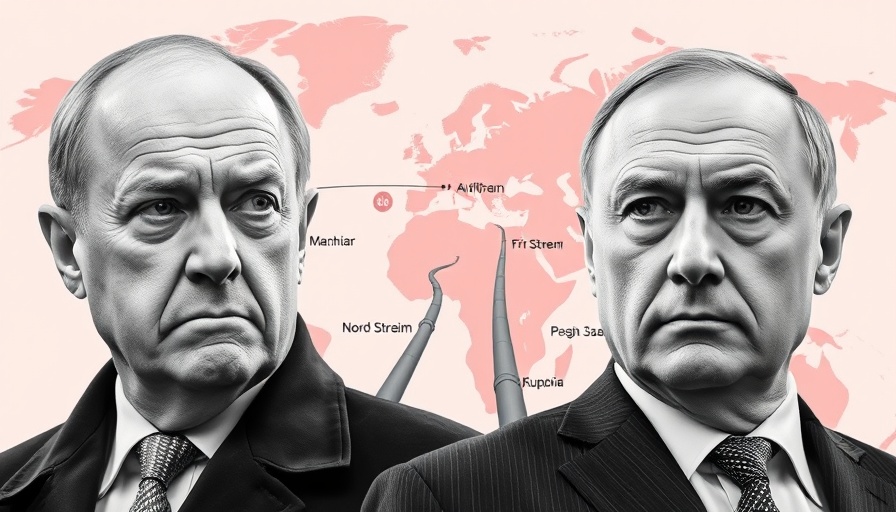
Nord Stream 2 Deal: A New Chapter for Energy Politics
The international energy landscape is shifting once again with reports that a significant figure close to Russian President Vladimir Putin, Matthias Warnig, is advocating for a revival of the Nord Stream 2 pipeline. This initiative appears to be gaining traction as it positions itself as a potential bridge for reestablishing U.S.-Russia relations in a post-sanction environment. Amid ongoing discussions about ending the war in Ukraine, the prospect of reactivating this controversial pipeline has raised both hopes and concerns across Europe.
Understanding the Strategic Importance of the Nord Stream 2
The Nord Stream 2 pipeline, intended to transport Russian natural gas directly to Germany, has been a focal point of geopolitical tensions in recent years. After being halted due to sabotage in 2022 and subsequent sanctions, its potential restart is not just about energy supply; it is intertwined with broader diplomatic maneuvers. The involvement of U.S. businessmen and connections to the previous Trump administration highlight a willingness to explore energy partnerships that could ease economic strains stemming from the ongoing conflict in Ukraine.
Concerns Among European Allies
European officials have expressed significant reservations about the ramifications of reactivating Nord Stream 2. Many fear that doing so would grant the United States undue influence over European energy dependencies. The EU's collective sanctions against Russia reflect a shared commitment to mitigating its power throughout Europe. Therefore, if sanctions are lifted to allow gas flows to resume, it could create fractures within the EU itself, exacerbating the already delicate dynamics of multinational energy policy.
Relevance to Import-Export Companies
For import-export companies, the consequences of a revived Nord Stream 2 are profound. An increase in Russian gas imports would undoubtedly affect pricing dynamics across Europe, with potential effects rippling through various sectors. Trade companies must remain vigilant as the balance of energy supplies could impact market stability, operational costs, and competitive positioning in an already tumultuous trading environment.
Opportunities for U.S. Political Influence
On the other hand, the revival of Nord Stream 2 could facilitate a newfound U.S. political influence within Europe, opening pathways for negotiations that may translate into beneficial trade agreements. Aligning with energy giants through this initiative presents a unique opportunity for American businesses to foster deeper ties in the European energy market while ensuring energy security for vulnerable nations reliant on Russian gas.
The Path Ahead
The road to reviving Nord Stream 2 is fraught with challenges, particularly regarding sanctions and the will of European nations. Matthias Warnig’s efforts exemplify how energy politics are inextricably linked to international relations. Import and export companies must prepare for volatility while keeping a close watch on developments in this arena as it might reshape the landscape of global trade decisively.
As this situation unfolds, it is essential for businesses to seek out financial insights that can help them navigate these changing tides. Now more than ever, understanding the intricate relationship between energy policies and international trade is vital for making informed decisions that safeguard their interests and growth prospects in a complex global market.
 Add Row
Add Row  Add
Add 




Write A Comment